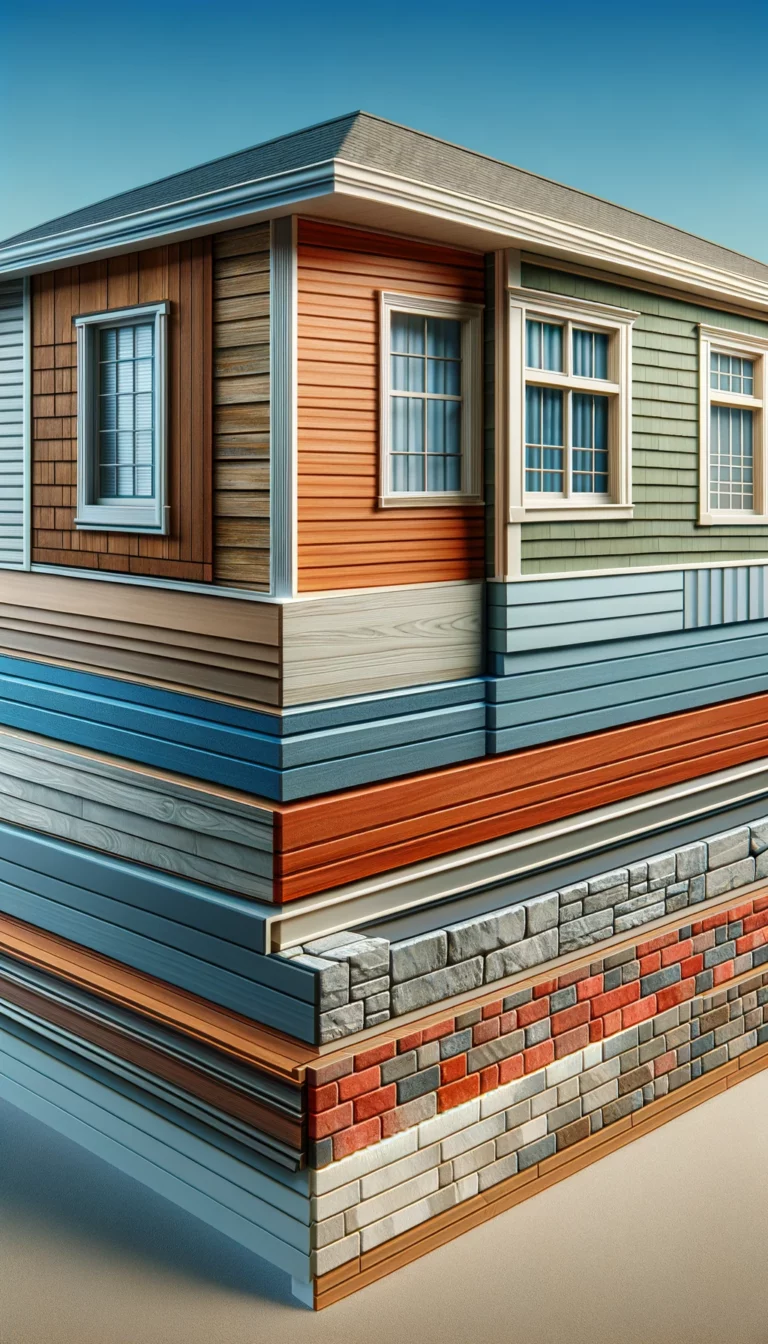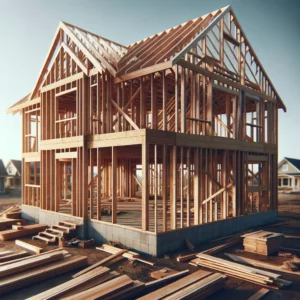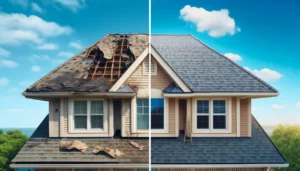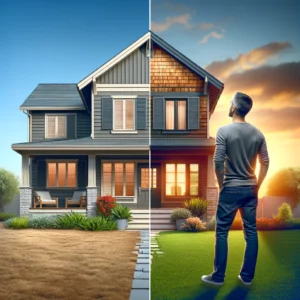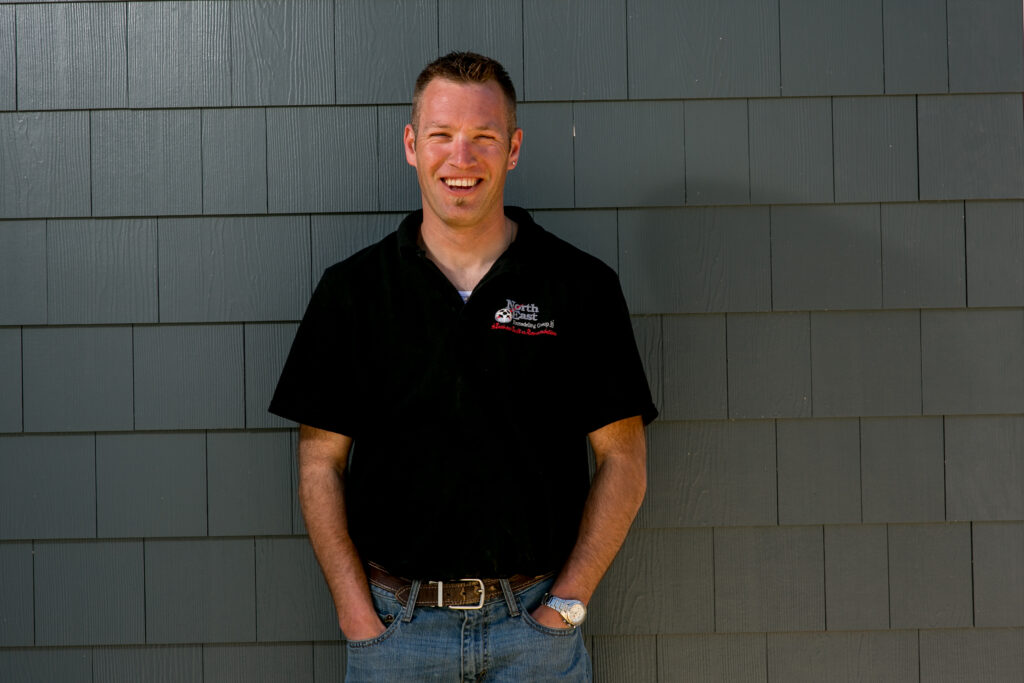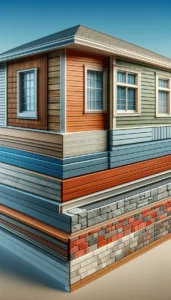When it comes to construction and home improvement, home siding is a worthy challenge. Choosing the right type of siding for a building i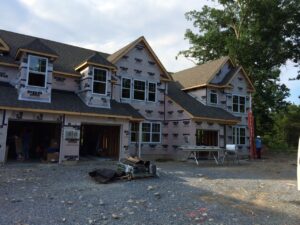 s crucial for both aesthetics and protection. Your home siding serves as the first line of defense against the elements, while also playing a key role in defining the look and feel of a property. With numerous options
s crucial for both aesthetics and protection. Your home siding serves as the first line of defense against the elements, while also playing a key role in defining the look and feel of a property. With numerous options
available, each offering its own set of advantages and drawbacks, making an informed decision is essential. Here’s a comprehensive look at the different types of siding and their respective pros and cons to help you select the best fit for your project.
Have a siding project coming up, check out some of the things to thing about.
Types of Home Siding
1. Vinyl Siding
Pros:
- Affordability:Vinyl siding is among the most cost-effective options, offering good durability without breaking the bank.
- Low Maintenance: It requires little more than a wash with soap and water to keep your home siding looking new.
- Variety: Available in a wide range of colors and textures, vinyl siding can mimic the look of wood and other materials.
Cons:
- Durability Issues: While resistant to pests and moisture, vinyl can crack in very cold weather and fade under constant sun exposure.
- Environmental Concerns: Vinyl is a type of plastic, and its production and disposal raise environmental concerns.
2. Wood Siding
Pros:
- Natural Beauty: Wood siding offers a timeless, classic look that many homeowners and builders love.
- Customization: It can be painted or stained in any color, providing versatility in design.
- Eco-Friendly: Being a natural material, wood siding is more environmentally friendly than synthetic options.
Cons:
- Maintenance: Wood siding requires regular maintenance, including painting or staining to prevent decay and damage from insects.
- Cost: It is generally more expensive than vinyl siding, both in terms of initial investment and maintenance costs.
3. Fiber Cement Siding
Pros:
- Durability: Fiber cement siding is highly durable, resistant to pests, fire, and rot, making it a long-lasting option.
- Appearance: It can mimic the look of wood, stone, or brick, offering aesthetic versatility without the associated maintenance.
- Weather Resistance: It stands up well to a variety of climates, from the hot sun to freezing temperatures.
Cons:
- Installation Complexity: The installation of fiber cement siding requires professional expertise due to its heavy and brittle nature.
- Cost: It is more expensive than vinyl siding but generally offers better durability and longevity.
4. Brick and Stone Veneer Siding
Pros:
- Aesthetic Appeal: Both brick and stone veneer provide a rich, elegant appearance that boosts curb appeal.
- Low Maintenance: Once installed, they require little maintenance beyond occasional cleaning.
- Durability: These materials are resistant to fire, pests, and weather, offering excellent longevity.
Cons:
- High Cost: The initial installation cost for brick and stone veneer can be significantly higher than other siding options.
- Installation Requirements: Proper installation is key to avoiding issues with moisture and ensuring the longevity of the siding.
5. Metal Siding
Pros:
- Durability: Metal siding, including aluminum and steel, is durable, fire-resistant, and not prone to rot or pest damage.
- Low Maintenance: It requires minimal upkeep and can last for decades with proper care.
- Energy Efficiency: Reflective properties of metal can help in reducing cooling costs in warmer climates.
Cons:
- Denting: Metal siding can dent upon impact, and depending on the type, may be susceptible to corrosion.
- Cost and Noise: High-quality metal siding can be costly, and it may increase noise during rainstorms.
6. Stucco Siding
Pros:
- Aesthetic Flexibility: Stucco can be applied in various textures and colors, offering a range of stylistic choices for homeowners.
- Energy Efficiency: Its composition provides excellent insulation, helping to keep homes cooler in summer and warmer in winter.
- Durability: When properly applied, stucco is resistant to fire, pests, and rot, offering a long lifespan.
Cons:
- Maintenance: While generally low maintenance, stucco can crack as the foundation of a house settles or if hit hard enough.
- Climate Sensitivity: In areas with excessive moisture, stucco might not be the best choice as it can absorb water, leading to damage.
7. Composite Siding
Pros:
- Durability and Maintenance: Composite materials are designed to offer the look of wood but with greater durability and less maintenance.
- Eco-Friendly Options: Many composite sidings are made from recycled materials, making them a more sustainable choice.
- Versatility: Available in various styles and colors, composite siding can suit many architectural styles.
Cons:
- Cost: Higher-quality composite siding options can be more expensive than traditional materials like wood or vinyl.
- Installation Considerations: Proper installation is crucial to prevent moisture penetration, which can lead to damage.
8. Engineered Wood Siding
Pros:
- Cost-Effective Alternative: Engineered wood provides the look of real wood at a lower cost and with reduced maintenance.
- Eco-Friendly: It’s often made from wood chips and sawdust, making it a more sustainable choice than solid wood.
- Durability: Engineered wood is treated to resist moisture, rot, and pests more effectively than traditional wood.
Cons:
- Vulnerability to Moisture: Despite treatments, poor installation or maintenance can lead to moisture issues, potentially leading to decay.
- Maintenance: It may require more maintenance than vinyl or metal home siding but less than traditional wood.

